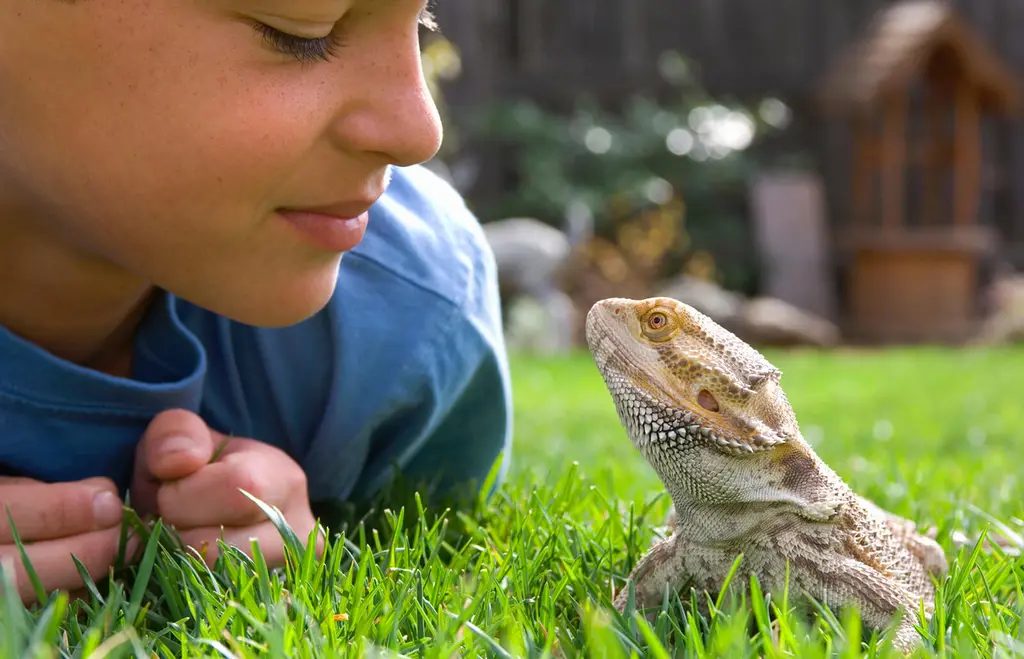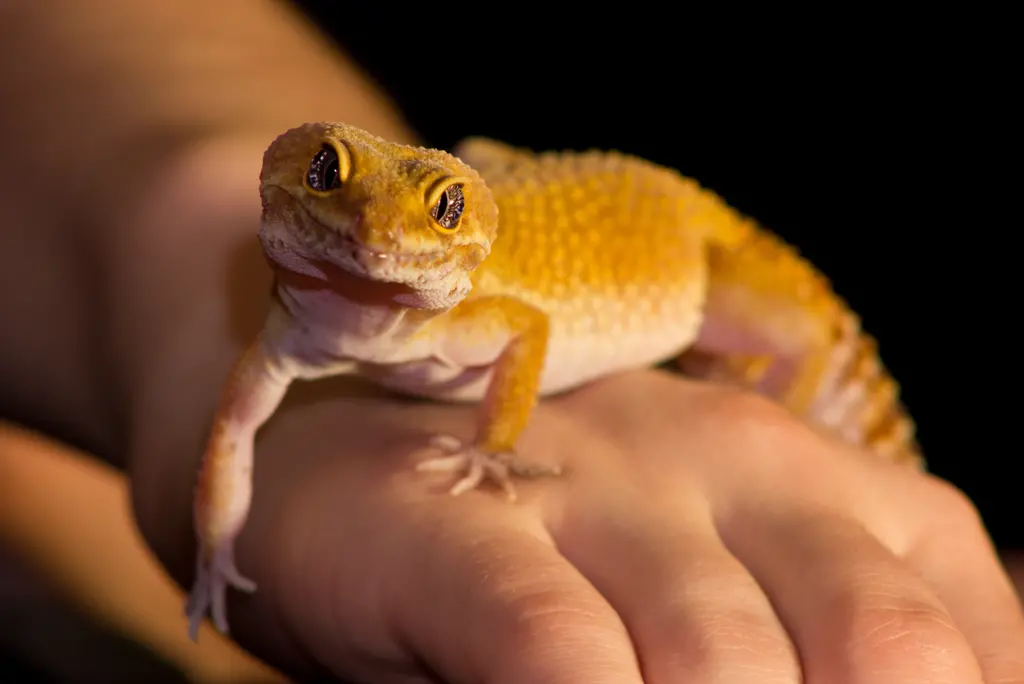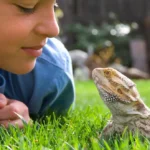Have you ever wondered that Is Lizards a Pet Animal? These fascinating reptiles have been captivating the hearts and imaginations of animal lovers for centuries. While they may not be as common as cats or dogs, the idea of keeping a lizard as a companion has sparked the interest of many curious pet owners.
Lizards come in a wide variety of shapes, sizes, and colors, making them visually striking additions to any home. From the bearded dragon’s spiny crest to the leopard gecko’s striking patterns, these unique creatures offer a compelling alternative to more traditional household pets. But are lizards truly suitable for life as a pet?
In this comprehensive guide, we’ll dive deep into the world of keeping lizards as pets. We’ll explore the appeal of these reptilian companions, assess their suitability as household animals, and introduce you to some of the most popular lizard species for pet owners. Whether you’re a seasoned reptile enthusiast or simply curious about the idea of a lizard as a pet, this article will provide you with the insights and information you need to make an informed decision.
Assessing the Suitability of Lizards as Pets
However, before deciding to bring a lizard into your home, it’s crucial to carefully consider the unique requirements and potential challenges of keeping these reptiles as pets. Providing the proper environment, nutrition, and care for a lizard is essential to their health and well-being.
Habitat Setup and Environmental Needs:
Lizards require specialized enclosures that replicate their natural habitats, complete with appropriate lighting, temperature, humidity, and substrate. Maintaining the correct environmental conditions is crucial, as lizards are ectothermic (cold-blooded) and rely on their surroundings to regulate their body temperature. Failure to provide the right habitat can lead to serious health issues.
Dietary Requirements and Feeding:
Feeding a lizard can also be more complex than caring for many other pets. Depending on the species, a lizard’s diet may consist of live insects, small rodents, or a combination of plant and animal matter. Acquiring the necessary food sources and preparing meals can be time-consuming, and owners must be vigilant about providing a balanced, nutritious diet.
Health Concerns and Veterinary Care:
Lizards are susceptible to a range of health problems, from respiratory infections to metabolic disorders. Seeking out a veterinarian who specializes in reptile care is essential, as they can provide the necessary expertise to diagnose and treat any issues that may arise. Regular check-ups and preventative care are also crucial for maintaining a lizard’s well-being.
Handling and Interaction Considerations:
While many lizard species can be quite docile, they may still exhibit defensive behaviors or become stressed if handled improperly. Owners must be patient and gentle when interacting with their pets, taking the time to acclimate the lizard to human interaction and learn the appropriate techniques for safely picking up and holding the animal.
Popular Lizard Species for Pet Owners
When it comes to keeping lizards as pets, several species stand out as particularly well-suited for the average household. Let’s explore some of the most commonly kept lizard pets in the United States:
Bearded Dragons:
Bearded dragons are among the most popular lizard pets, thanks to their generally calm temperament and adaptability to captive environments. These medium-sized lizards from Australia can grow up to 24 inches in length and are known for their ability to “puff out” the skin around their necks, which gives them a distinctive “bearded” appearance.
Leopard Geckos:
Leopard geckos are small, nocturnal lizards native to the Middle East and Central Asia. Their striking spotted patterns, relatively low maintenance care requirements, and docile nature make them a popular choice for first-time reptile owners. Leopard geckos typically reach a maximum length of 10 inches.
Anoles:
Also known as American chameleons, anoles are tiny, arboreal lizards found throughout the southeastern United States. Despite their diminutive size, typically around 5-8 inches, anoles are active, engaging pets that can be fun to observe and interact with.
Iguanas:
While iguanas can make impressive pets, they are not recommended for novice reptile owners. These large, herbivorous lizards, which can grow up to 6 feet in length, require significant space, specialized care, and a significant time commitment. Iguanas are also known for becoming more aggressive as they mature.
Responsible Lizard Pet Ownership
Regardless of the specific species, keeping a lizard as a pet requires a significant commitment to research, preparation, and ongoing care. Prospective owners must educate themselves on the unique needs and characteristics of their chosen lizard, ensuring they can provide the appropriate habitat, diet, and healthcare.
Habitat Preparation:
Setting up a suitable enclosure is one of the most critical aspects of caring for a pet lizard. This includes providing the correct lighting, temperature, humidity levels, and substrate to replicate the animal’s natural environment. Owners must also be prepared to regularly maintain and clean the habitat to keep their lizard healthy and thriving.
Nutritional Needs:
Feeding a lizard can be more complex than caring for many other pets. Owners must research the specific dietary requirements of their chosen species, which may involve purchasing and preparing live insects, rodents, or a specialized plant-based diet. Proper nutrition is essential for a lizard’s growth, development, and overall health.
Handling and Interaction:
While many lizard species can be quite docile, they still require careful, gentle handling to avoid causing undue stress or injury. Owners should take the time to acclimate their pet to human interaction, learning the appropriate techniques for safely picking up and interacting with their lizard.
Veterinary Care:
Seeking out a veterinarian who specializes in reptile care is crucial for maintaining a lizard’s health. Regular check-ups, preventative treatments, and prompt attention to any medical issues that arise are essential for ensuring the well-being of a pet lizard.
Addressing Potential Challenges
While keeping a lizard as a pet can be a rewarding experience, it’s important to be aware of the potential challenges that may arise. Common behavioral or health issues that owners may encounter include:
Stress and Aggression:
Lizards can become stressed or aggressive if their environment is not properly set up or if they are handled incorrectly. Owners must be patient and attentive to their pet’s needs to prevent these issues.
Nutritional Deficiencies:
Providing a balanced, nutritious diet is critical for a lizard’s health. Improper feeding can lead to metabolic disorders, growth problems, and other serious health concerns.
Respiratory Infections:
Respiratory issues are a common concern for pet lizards, often caused by inappropriate habitat conditions or environmental stressors. Prompt veterinary attention is essential for treating these conditions.
By staying informed, properly preparing the lizard’s habitat, and providing attentive, responsible care, owners can successfully navigate these potential challenges and ensure the long-term health and well-being of their pet lizard.
Conclusion
Keeping a lizard as a pet can be a fascinating and rewarding experience, offering the opportunity to observe and interact with these unique, captivating creatures. However, it’s essential for prospective owners to thoroughly research the specific needs and requirements of their chosen lizard species before making the commitment.
Providing the appropriate habitat, diet, and veterinary care is crucial for maintaining a lizard’s health and happiness. With the right preparation and dedication, lizards can make engaging, low-maintenance companions that can enrich the lives of their owners. By carefully considering the factors involved in responsible lizard pet ownership, individuals can determine if welcoming a scaly, scaled friend into their home is the right choice.
FAQs About Is Lizards a Pet Animal?
Q:Can you keep a lizard as a pet?
A:Yes, a lizard can be considered a pet animal
Q:Is it halal to have a pet lizard?
A: It is not permissible to keep such animals as pets that the Hadith has encouraged to kill
Q:Is lizard good at home?
A:Lizards living in people’s homes are harmless.
Q:How long do lizards live?
A:The lifespan of a Lizard depends on the species of Lizards. Geckos survive for about 10-15 years in a typical home, the Chameleons are known to survive for around 5-7 years, the Iguanas survive for about 20 years, and the Komodo Dragons, the biggest of the reptiles, live for an average of 40 years.
Q:Are lizards lucky or unlucky?
A:It is seen as a sign of good fortune and potential for growth within the family.

Hi. My Name is Alexander Bell. I am a professional content writer since 2006.
18+ years of experience crafting compelling and authoritative content for diverse audiences.
🖋️ Specialize in formal article writing, combining meticulous research with engaging storytelling.
📚 Proven track record of delivering high-quality content across various industries, including technology, finance, and healthcare.
💡 Skilled in SEO best practices and optimizing content for digital platforms to maximize reach and engagement.
🔍 Strong research capabilities, adept at distilling complex information into accessible, informative articles.
🎓 BA in English Literature










